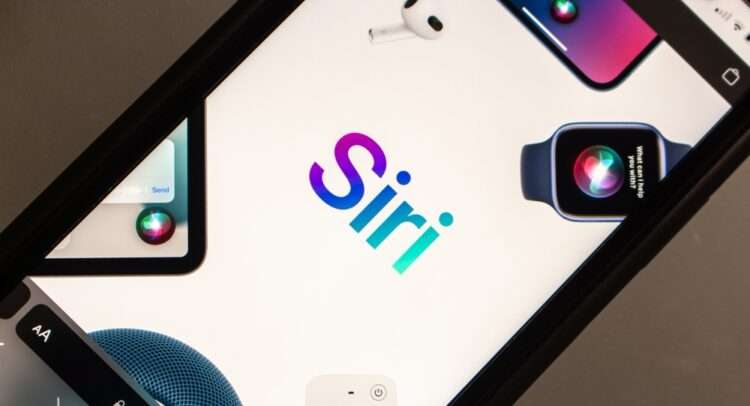Apple is in talks to integrate advanced AI models from OpenAI and Anthropic into future versions of Siri, signaling that the iPhone’s voice assistant could soon get a powerful upgrade after years of lagging behind competitors.
Launched in 2011 as a flagship feature on the iPhone 4S, Siri was the first widely adopted voice assistant, bringing voice commands and conversational interactions into everyday use.
However, while rivals like Google Assistant and Amazon’s Alexa evolved rapidly, Siri has struggled with limitations in context awareness, conversational depth, and multilingual understanding.
For years, iPhone users have complained that Siri can’t handle complex queries as well as newer AI models like ChatGPT.
Apple’s focus on privacy and tight ecosystem control has also made rapid innovation more difficult.
According to Bloomberg, Apple is exploring deep collaborations with AI leaders OpenAI and Anthropic to power a future version of Siri.
While Apple has been working internally on a project known as “LLM Siri,” it’s reportedly testing whether third-party models could deliver superior performance when hosted on Apple’s secure cloud infrastructure.
Apple had originally planned to release a more advanced Siri in 2025, but technical obstacles have pushed that timeline back to 2026 or beyond.
Currently, Siri already taps into ChatGPT for handling some complex questions, a subtle hint that Apple may be warming up to outside partnerships. However, this latest development suggests a much deeper integration may be on the way.
What It Means for iPhone Users
For millions of iPhone users, this move could mark a significant shift in how Siri performs. Partnering with sophisticated AI systems could make Siri more conversational, better at understanding nuanced questions, and far more useful in everyday life.
Such improvements could transform how iPhone owners interact with their devices, enabling seamless voice-based tasks, smarter app integrations, and potentially more personalized assistance—all while maintaining Apple’s strict privacy standards.
Apple has traditionally preferred to build critical technologies in-house, but the explosive growth of generative AI tools like ChatGPT and Claude has pressured even the world’s most valuable tech company to consider partnerships.
Experts say the stakes are high: Apple must balance its commitment to privacy with the need for cutting-edge AI capabilities to keep iPhone users engaged and maintain its competitive edge in the booming AI era.
As Apple weighs its options, iPhone users could be on the cusp of experiencing a smarter, more capable Siri that finally rivals—or even surpasses—the competition.
Talking Points
Siri’s Upgrade: Convenience or Control? For users, a smarter Siri sounds fantastic—more natural conversations, smarter recommendations, faster help.
But there’s a risk: deeper AI integration means these systems learn more about us than ever before. Are we sleepwalking into an era where voice assistants know our preferences better than we do—and shape them in ways we don’t even notice?
This is not sci-fi paranoia; it’s a genuine governance question for every society.
A Wake-Up Call for Local Innovators. If Apple, with all its resources, is turning to external AI companies, what does that say for startups trying to build AI products independently?.
African innovators shouldn’t wait to be “included” in Western AI models—they should be building their own, tailored to local needs.
The danger is letting Africa’s digital economy become an eternal testing ground for tech made elsewhere.
An African Siri? Why Not? Instead of celebrating how Siri might finally “catch up,” we should be asking:
- Where’s the African voice assistant, trained in African languages and local contexts?
- Why isn’t Apple or Google partnering with African AI labs to build truly inclusive voice technologies?





